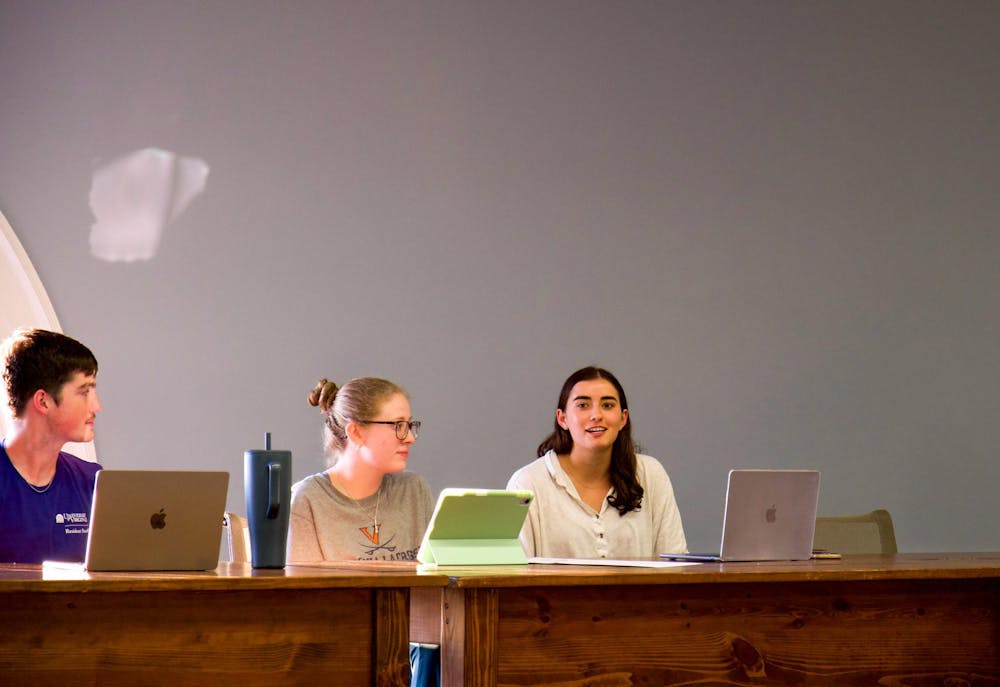The Honor Committee met Sunday to discuss a possible partnership with other honor committees and councils at other undergraduate institutions, such as the Honor Council at University of Mary Washington, with the goal of expanding outreach and sharing ideas. The Committee also heard from representatives about how to further expand the Committee’s outreach to first-year students and to fully remote students.
Thomas Ackelson, Committee chair and fourth-year Engineering student, opened the meeting by presenting a meeting he had earlier last week with Adam McAninley, the University of Mary Washington Honor Council President. During the meeting between Ackleson and McAninley, they went over the similarities in their respective honor systems and issues they have faced.
Ackelson said that he and McAninley discussed creating a small network of honor committees among certain undergraduate institutions so they can share their ideas, successes and challenges of their programs. Ackelson mentioned this proposed network being similar to The Citadel Honor Conference, which is a support network of honor systems among the nation's top military institutions.
“We decided to work together to form something of a network between some of the honor committees at other undergraduate institutions, sort of like The Citadel’s conference, but at a smaller scale,” Ackelson said.
The Committee also discussed a separate meeting between Ackelson, Genny Freed, vice chair for sanction and fourth-year College student and Mark Erath, assistant professor in the School of Continuing and Professional Studies. In their talk with Erath, Ackelson and Freed continued their conversation from last week's Committee meeting about how the Committee could better accommodate and include fully remote students in both the Honor sanction proceedings and community dialogue about Honor at the University.
Freed said that they talked about how to better include Continuing and Professional Studies students in the Restorative Ethics Seminars, which are student-led courses which operate as reformative courses for students that have been issued an educational sanction.
“We talked about various ways that we can make the [Restorative Ethics Seminars] more inclusive for [School of Continuing and Professional Studies] students,” Freed said. “Whether that's having a couple of students join over Zoom while the rest of the undergrad students are doing some kind of asynchronous [Restorative Ethics Seminar] or they have a facilitator check in with them every couple weeks.”
Cody Scarce, vice chair for investigations, chair of the Community Relations and Diversity Advisory subcommittee and third-year College student, mentioned the Committee's plan to give short 15-minute presentations to first-years about the Honor Committee and its processes. These presentations would take place during first-years’ Engagement courses — a series of four small seminar style courses that are mandatory for first-year students and aim to introduce the liberal arts education.
Scarce mentioned the subcommittee met Sunday to go over content they wanted to put into their presentation and plans to begin presenting to some Engagement sections this quarter.
The open session for the meeting closed with Ackelson discussing a new working group that will begin designing a new mandatory Honor Module that will be presented to incoming first-year students to introduce them to the Honor procedures and policies at the University.
The Committee's next meeting will be on Sunday at 7 p.m. The meetings can also be attended via Zoom. The link to the Zoom meetings and the meeting minutes are located on the Committee’s website.







